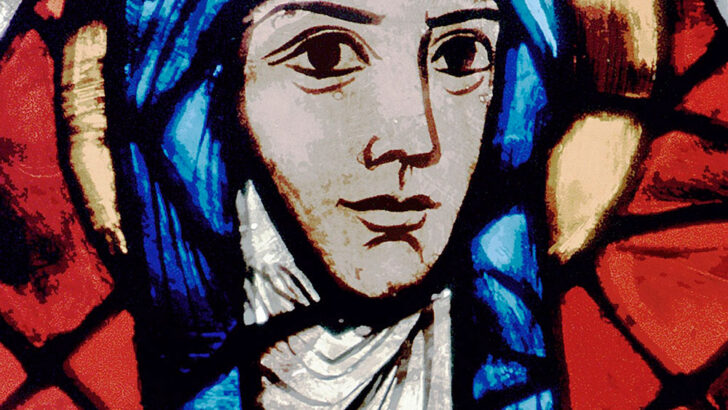There has been, obviously, much discussion about the role of women in the national sphere recently; but one of the groups drawing least attention is what we might call ‘the tribe of widows’.
When I was involved, with others, in forming the Irish Women’s Liberation Movement in 1970, the position of widows was one of our key concerns. They were often discriminated against in pension rights, and sometimes socially marginalised.
Nature differentiates between the sexes, and one benefit that generally applies to women is that we tend to live longer than men. There are individual exceptions, but the average female lifespan is everywhere longer than the average male one. There are nearly always more widows than widowers.
Widows
Widows felt the need to be included in a feminist movement which sought to improve the lot of women generally, and their lobby was very much part of the 1970 mission. But today, are widows somewhat omitted from the picture?
Were widows more visible when they routinely donned ‘widows’ weeds’? Maud Gonne, though she wasn’t really very happily married to John MacBride, wore black for the rest of her life as a tribute to her late husband’s patriotism. That practice of widows wearing black continued in the Mediterranean countries up till modern times.
Have widows usually been associated with poverty or penury? The smallest monetary contribution mentioned in the New Testament is ‘the widow’s mite’ – but deemed to be just as valued as any greater one.
It wasn’t unusual, in the Middle Ages, for widows to join or found convents”
And have widows been symbolically linked with loneliness? When print was composed by hot metal, a word sitting alone at the end of a paragraph was called ‘a widow’, by sub-editors, and deemed suitable for deletion or editing.
Yet, there is also the more cheering tradition of The Merry Widow, as musicalised by Franz Lehar. And in Synge’s The Playboy of the Western World the Widow Quin is among the friskier of the females portrayed in a rural Irish setting.
In France, at least three champagne houses have been founded by widows, the most famous being La Veuve Clicquot. Many is the time I heard an imbiber request ‘a glass of the Widow’.
Contributions
Widows have made an immense contribution, over the ages, to the building and adornment of churches and the funding of altars and monuments. It wasn’t unusual, in the Middle Ages, for widows to join or found convents, like St Brigid of Sweden.
In Ireland, widows like Olivia Mary Taaffe, who launched St Joseph’s Young Priests’ Society, were often important patronesses in the education of priests.
Widows who might not have had time for religious practice in their family life – or perhaps felt restrained by a spouse’s influence – often return to involvement with the church in widowhood. James Joyce’s widow, Nora Barnacle, returned to Catholic practice after the great writer died.
It’s probable that the majority of women will at some point experience widowhood”
Perhaps widows aren’t given a special place in the feminist canon today, as they are more likely to be grouped with a broader definition of single women. And perhaps conditions – like pensions – have improved for many.
But don’t overlook the tribe of widows. It’s probable that the majority of women will at some point experience widowhood.
Widows have made an immense contribution, over the ages, to the building and adornment of churches and the funding of altars and monuments”
Perhaps success is the best revenge…
A leading Scottish judge, Her Honour Lady Rita Rae, recently appeared on the BBC’s legendary Desert Island Discs and, in telling her story, brought much illumination to recent social history.
When Lady Rae first became a young lawyer in the 1970s, solicitors were often reluctant to engage a woman barrister. She was told that women were ‘emotionally unsuitable’ for court work – in 1974! (Had they never heard of Shakespeare’s Portia?)
She also encountered anti-Catholic bias, in the Scottish law, and within her own family. Her mother was an Italian Catholic, her father a Glasgow Protestant.
When her father told his own family that his wife was expecting a baby, his father commented bitterly – “you’re proud to bring another Roman Catholic into the world?” The grandfather never accepted his Catholic grandchildren.
When Rita was studying for the bar she heard many anti-Catholic jibes; she always spoke up and disclosed she was a Catholic, since her mother was Italian. “So you’re not a Fenian bastard, then?” smirked one of the budding silks.
She became a much-respected judge and Rector of Glasgow University. Perhaps success is indeed the best revenge.
***
Mr de Valera, principal author of the Constitution, might have commended me last weekend for spending long hours attending to ‘domestic duties’.
I scrubbed, cleaned, spritzed, blitzed, dusted, vacuumed, mopped, polished, shampooed and vaporised in a frenzy of domestic spring-cleaning.
I am more driven by shame than by pride: the endeavour was not to achieve a houseproud appearance, but to avoid a shaming one. I was expecting visitors and it mortified me to think they might spot grime on the kitchen surfaces. And it seemed a suitable purging Lenten ritual anyway…


 Mary Kenny
Mary Kenny St Bridget of Sweden, a widow who founded a religious order. Photo: CNS.
St Bridget of Sweden, a widow who founded a religious order. Photo: CNS. 